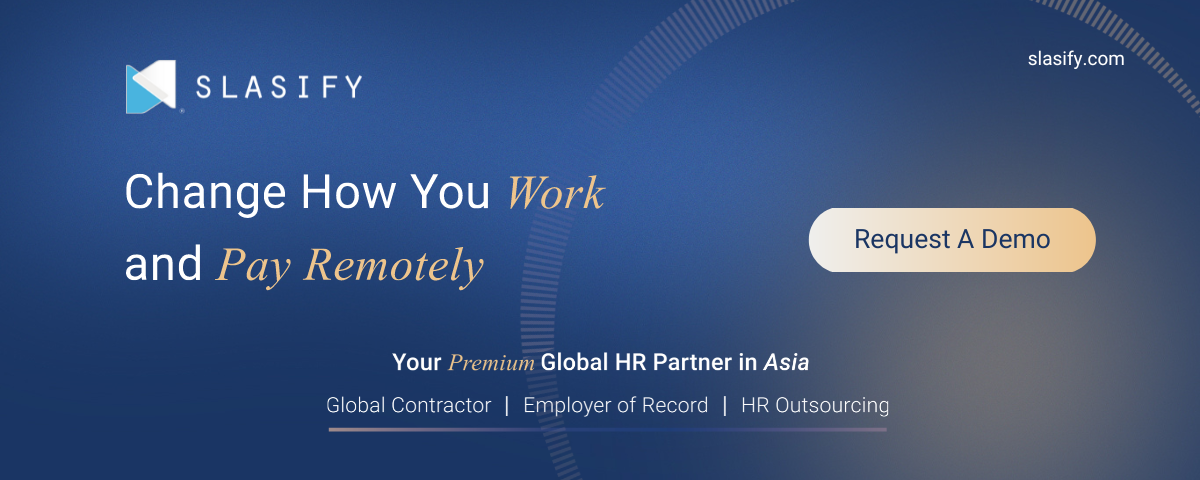Why Businesses are Expanding to Southeast Asia
Expanding your business is a significant strategic move, one that demands careful consideration. Often, businesses opt for more familiar routes and target established markets in the West or East Asia during their global expansion plans. However, in this preference for what’s familiar, an undiscovered goldmine often lies in plain sight: Southeast Asia (SEA).
Amidst the allure of big markets, SEA emerges as a dynamic region with immense potential, especially go-to countries like Singapore, Malaysia, Thailand, and the Philippines. Interestingly, cross-regional expansion is also predominant, with Malaysia, Indonesia, and Vietnam being favoured by Singapore-based SMEs. This article will delve into why SEA represents a compelling choice for businesses, shedding light on its practical advantages alongside the concerns that come with expanding into this region.

Southeast Asia: The Basics
Southeast Asia, often abbreviated as SEA, is a region situated in the southeastern part of the Asian continent. It comprises a diverse group of countries, each with its unique cultural heritage, economic strengths, and market characteristics. It is not to be confused with ASEAN (the Association of Southeast Asian Nations), which is a political and economic organization comprising ten member countries in the region. While ASEAN plays a pivotal role in regional cooperation, SEA, in the context of business expansion, encompasses a broader scope of countries, offering a wide range of opportunities for entrepreneurs and corporations alike.
Top Reasons for Business Expansion into SEA
Skilled Workforce
SEA’s compelling workforce is one of the primary reasons for businesses to expand into the region. With a growing population of young, educated, and highly skilled professionals, SEA offers a diverse talent pool across various industries. From tech-savvy developers to proficient marketing experts and adept business development representatives, this workforce readily fulfills the demands of various sectors. Beyond the operational benefits, this skilled labor force acts as a catalyst for innovation and growth, driving businesses toward new horizons.
Competitive Wage Structure
The region’s cost-competitive labor market is appealing to businesses looking to enhance profitability without compromising fairness to SEA talents. Labor costs in the region are typically more economically advantageous than those in other parts of the world, enabling companies to efficiently maintain or even improve the quality of their products or services while effectively managing operational expenses.
For instance, businesses can adopt a fair compensation strategy that aligns with regional standards and offers competitive pay packages, benefits, and professional development opportunities. This cost advantage can be a strategic asset, particularly for small and medium-sized enterprises (SMEs) aiming to optimize their financial resources and compete more effectively on a global scale, all while ensuring equitable treatment and opportunities for talented professionals in the region.

Organic Growth
In this region with diverse markets and changing consumer tastes, businesses find abundant prospects for organic growth. Rising incomes across SEA have created a more discerning consumer base, seeking a wider range of products and services. Rather than viewing the nations as a single emerging market, it’s more like a group or bloc of maturing markets, each following its unique path. This diversity allows businesses to discover niches and tailor their offerings to meet the distinct needs and preferences of various countries. Whether businesses specialize in technology, consumer goods, or services, the multifaceted nature of this region presents numerous opportunities for organic expansion, making it an ideal destination for sustainable growth.
Digital Transformation
Within the region, a digital revolution is currently underway, offering opportunities for businesses to prepare for the future. The region’s rapidly expanding online population and increasing internet penetration rates establish it as a prime destination for digital transformation initiatives. In addition to broadening market reach and enhancing customer engagement through online channels, companies can explore innovative ways to streamline operations, reduce costs, and maintain competitiveness in the evolving global landscape.
Whether enterprises operate in e-commerce, fintech, or any other industry, SEA’s dynamic digital ecosystem unlocks possibilities for leveraging data analytics, artificial intelligence, and emerging technologies to optimize processes and drive innovation. This transition plays a pivotal role for businesses to thrive in today’s increasingly interconnected world.
Sustainability and Resilience
Another compelling reason to consider expanding into SEA is the region’s growing focus on sustainability and resilience. As businesses worldwide increasingly embrace corporate responsibility and environmental sustainability, SEA’s commitment to eco-friendly practices and resource efficiency aligns with global trends. This emphasis on sustainability not only appeals to environmentally conscious consumers but also helps companies reduce their carbon footprint and operational costs.
Additionally, SEA’s geographical diversity can enhance business resilience, as operations can be strategically distributed across countries to mitigate risks and disruptions. This focus on sustainability and resilience positions SEA as an attractive destination for businesses committed to long-term success in a rapidly changing world.

Challenges When Expanding into SEA
The SEA market’s potential for growth may be tempting, but the reality is that it is filled with a myriad of difficulties. Neglecting to confront these challenges could prove costly for employers, leaving them with no choice but to exit the market if they do not promptly evaluate and tackle these issues. Below are the top challenges faced when venturing into the SEA market.
| Financial Stability | Economic volatility and currency fluctuations can disrupt financial plans and endanger profitability. |
| Regulation and Policies | The complex and ever-evolving regulatory frameworks in SEA countries can lead to compliance pitfalls and legal troubles. |
| Employee Management | Disparities in recruitment, talent development, and HR policies stemming from diverse cultures and legal systems can trigger workforce-related issues. |
| Sustainability Considerations | Divergent sustainability regulations, fluctuating consumer expectations, and evolving ethical practices can jeopardize a company’s reputation and competitiveness. |
| Cultural Differences | Language barriers, clashes in communication styles, and unfamiliar business etiquettes may disrupt operations and lead to misunderstandings. |
Despite these challenges, companies that tackle them successfully can tap into the opportunities SEA offers. By building strong relationships with local partners, staying attuned to regional compliance intricacies, and embracing the cultural nuances and regional know-how, businesses can not only overcome initial hurdles but also lay the foundation for sustained success in the ever-evolving Southeast Asian landscape.

Slasify: Your Expansion Partner in SEA
It is without a doubt that SEA presents a compelling opportunity for business expansion, with its skilled workforce, competitive wage structures, and dynamic digitization trends being top reasons for growth. However, it’s essential to acknowledge the complexity of this market. Among the challenges, compliance intricacies and cultural differences stand out as critical considerations that could make or break expansion plans.
Therefore, businesses entering SEA for the first time should prioritize partnering with local experts. These experts possess invaluable insights into the regional nuances, regulatory frameworks, and cultural norms. In addition to smoother market entry, they can also help in building trust with local stakeholders, ultimately positioning businesses for sustainable growth and prosperity. Ultimately, they can unlock the full potential of the Southeast Asian market and navigate its complexities with confidence.
Related Articles:
How Employer of Record Services Can Simplify Expansion into Singapore
Why Every Business Needs a Global Payroll Provider: The Advantages of Using Slasify
Global Hiring Made Easy: Tech-Forward Payroll Services for Singapore Businesses
Slasify is a one-stop platform offering Global Payroll, Employer of Records (EOR), and HR Outsourcing functions for the remote working generation. Our dedication to Diversity, Equality, and Inclusivity (DEI) and a proven track record with Forbes Top 100 Companies make us your ultimate payroll partner. Join us on a global HR journey, where we cater to your needs across 150+ countries. Unlock HR solutions tailored to you – Book a free consultation below!




